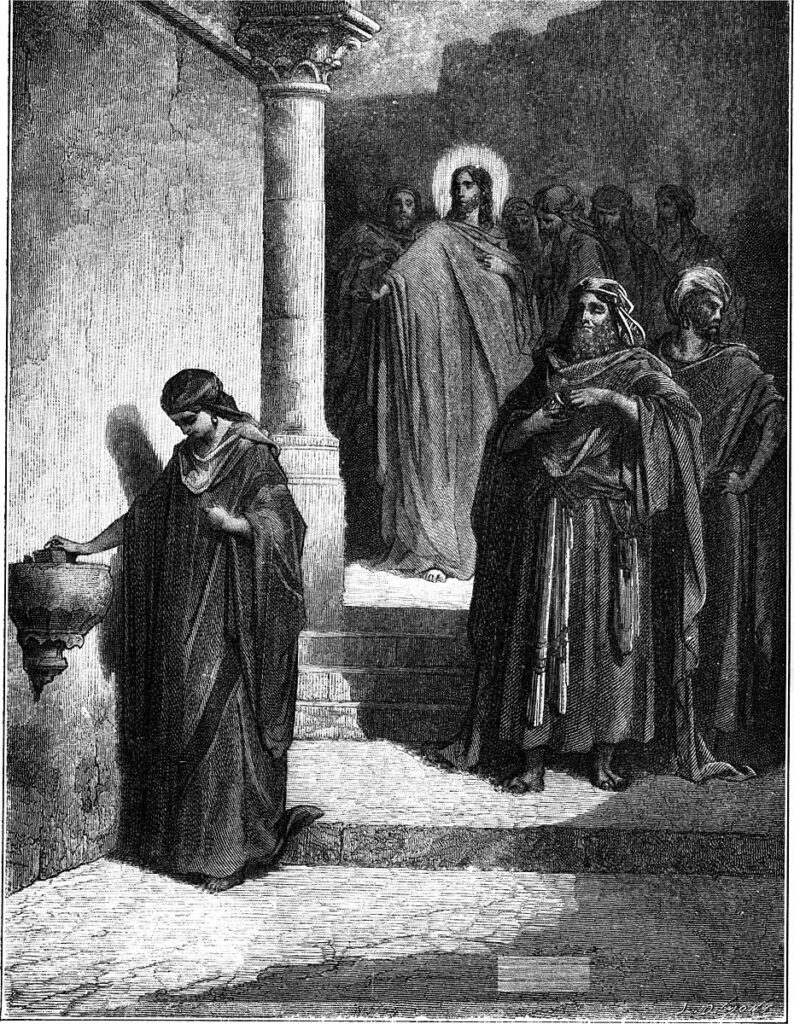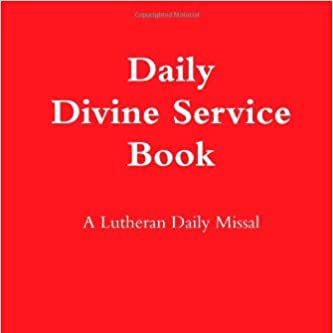A New Temple

Holy Tuesday is the Tuesday within Holy Week and one step in the quiet, contemplative journey with Jesus toward his passion and death. While Lent on the whole is devoted to repentance, catechesis, and Jesus’ perfect suffering, the two final weeks and Holy Week, in particular, are reserved for this final point: his bitter sufferings and death that he undertook for our salvation.
Similar to Holy Monday, this day might be overshadowed by the other monumental days during this most Holy Week, but it is still crucial to the greater picture. So let’s take a look at what took place on Holy Tuesday.
The events of Holy Tuesday begin in the Temple. We find Jesus teaching the scribes and Pharisees. He commends the widow for her gift of all of herself, a clear reflection of his own self-donation. He instructs about taxes and rending unto Caesar what is Caesar’s, and he responds to the tests of the Pharisees and Sadducees.
Also important is not only what Jesus says but what he does. At the same time that he predicts the coming destruction of the Jerusalem Temple, Jesus exits the Temple and makes his way to the Mount of Olives, a “sign act” showing that God is forsaking the Temple “made with hands” for its idolatry (just as Ezekiel sees the “glory” depart from Solomon’s temple as a prelude to its destruction in Ezekiel 8–11). Sacrifices of bulls and goats must cease as the earthly Temple gives way to the temple not made with hands, the temple of Jesus’ body that he will raise three days after its sacrificial destruction.
The Gospel reading for Holy Tuesday, the Passion according to St. Mark, tells about Jesus and his sacrificial suffering and death for our salvation, once and for all. The reading picks up at the Last Supper and goes through Jesus’ burial. As these events are presented for our remembrance and contemplation all week, so the other propers support the theme. Jeremiah’s prophecy indicates that the gentle lamb is led to the slaughter as his enemies seek to put an end to him, but in doing so his name is established forever.
The emphasis of Holy Tuesday for Christians is expressed in the collect in which we pray for the “grace so to pass through this holy time of our Lord’s passion that we may obtain the forgiveness of our sins.” This, Martin Luther explains, is done when God gives us the knowledge that our sins caused Jesus’ sufferings and that they truly belong to us. Therefore, to pass through this holy time involves reflecting on his sufferings on our behalf and turning from sin and taking comfort in Christ. Through all of that, Christians are led to glory in nothing but “in the cross of our Lord Jesus Christ. In him is salvation, life, and resurrection from the dead.”
Brief history
The celebration of Holy Week stretches back at least to the third and fourth centuries, when Christians would walk in time with Jesus on his final days and trace his steps to the cross. By the medieval era, the Church set these days aside as a time of pious observance. The plows would be laid to the side and games and merrymaking put away for all to focus quietly and intently on the most holy events commemorated during this week.
Daily masses were and continued to be offered in some places, making it possible for those who cannot take the Holy Week journey around Jerusalem to keep step with all who wish to observe this time in prayer and meditation.

Collect
Almighty and Everlasting God: grant us grace so to pass through this holy time of our Lord’s Passion, that we may obtain the pardon of our sins; through the same Jesus Christ, Thy Son, our Lord, who liveth and reigneth with Thee and the Holy Ghost: ever one God, world without end. Amen.
Lessons
Resources

Propers found in Daily Divine Service Book: A Lutheran Daily Missal, edited by the Rev. Heath Curtis
Images:
1. Jesus disputes with the Pharisees, Phillip Medhurst, England.
2. The Widow’s Mite, Gustave Doré, France, 1866.


[…] are putting together a mini three-part cleaning series to help commemorate the days of Holy Monday, Holy Tuesday, and Holy (Spy) Wednesday, which fall at the beginning of Holy Week. While spring cleaning is […]